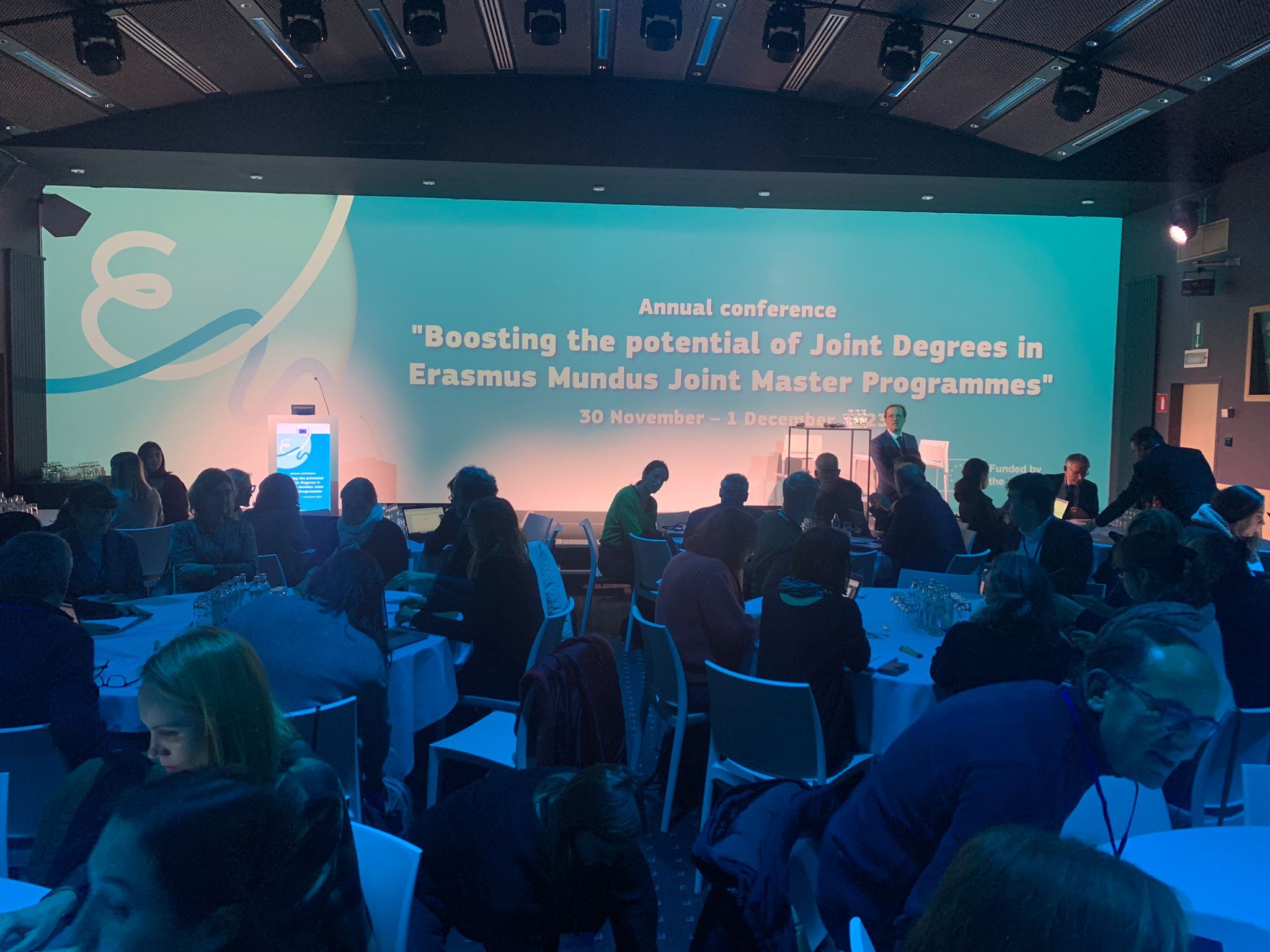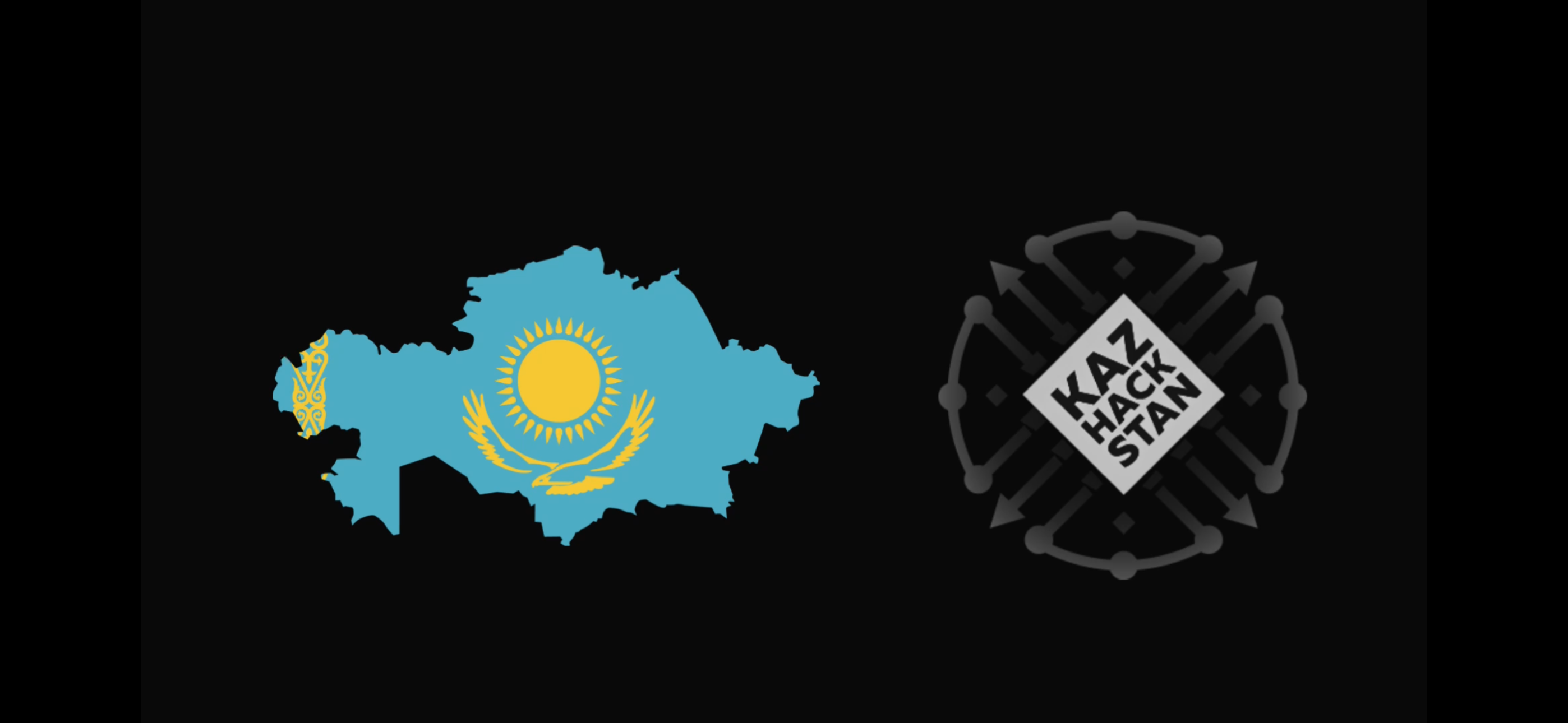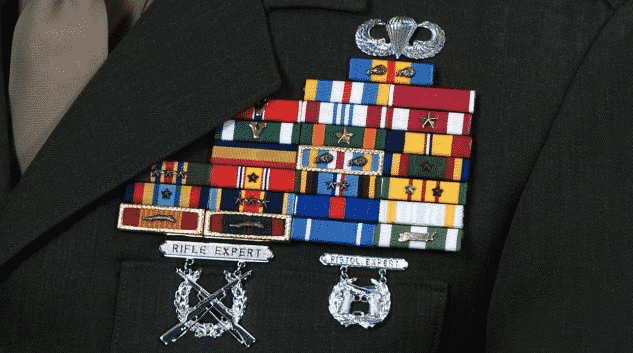Braving the Aftermath: Cyber Struggle’s Response to the 2023 Eartquake
Braving the Aftermath: Cyber Struggle’s Response to the 2023 Eartquake

On February 6, 2023, a devastating earthquake struck Türkiye, leaving behind immense destruction and loss. The earthquake affected the cities Hatay, Kahramanmaras, Gaziantep, Adiyaman, Malatya, Sanliurfa and Kilis. Among the hardest-hit areas was Hatay, particularly the district of Samandağ. In the immediate aftermath, while official response efforts were struggling to mobilize, our Cyber Struggle team made the decision to act.
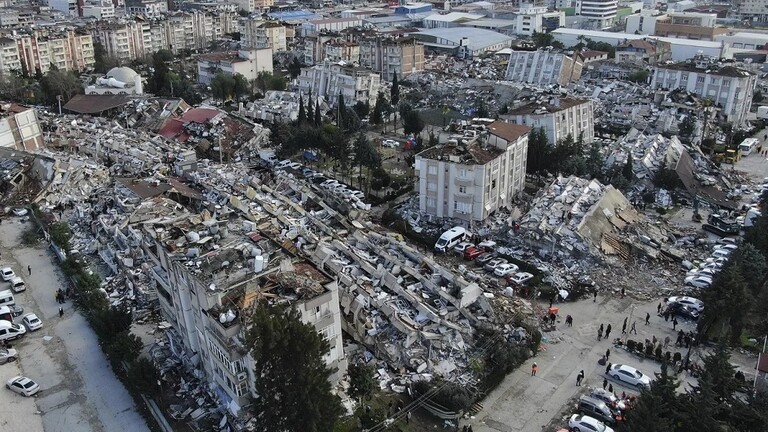
Arrival in a Silent Disaster Zone
Reaching the disaster zone was no easy task. The journey took more than 10 hours, navigating through snow-covered and difficult roads. The extreme weather conditions and damaged infrastructure made transportation slow and hazardous, but we pressed on, knowing that every moment counted.

When we arrived in Hatay/Samandağ, the scene was overwhelming. Buildings had collapsed, roads were blocked, and the air carried the weight of despair. There were only 10 to 15 soldiers on-site, doing their best with limited resources. No large-scale coordination was in place, and basic necessities were scarce.
Recognizing the need for immediate organization, we joined forces with the military unit and took on the task of crisis coordination. Our first mission was to assess the situation across Samandağ and nearby villages, prioritizing the most urgent rescue and aid needs.
Establishing Crisis Center and Organizing the Overall Aid
We quickly converted a sports hall into a crisis management center, a hub where relief operations could be coordinated. As we gathered information on immediate needs, we began mobilizing supplies, organizing logistics for food, water, medical aid, and shelter. With private vehicles and available transportation, we ensured the delivery of these essentials to those in need.
At the same time, members of our team directly participated in search and rescue efforts, working alongside others on the ground to pull survivors from the rubble.
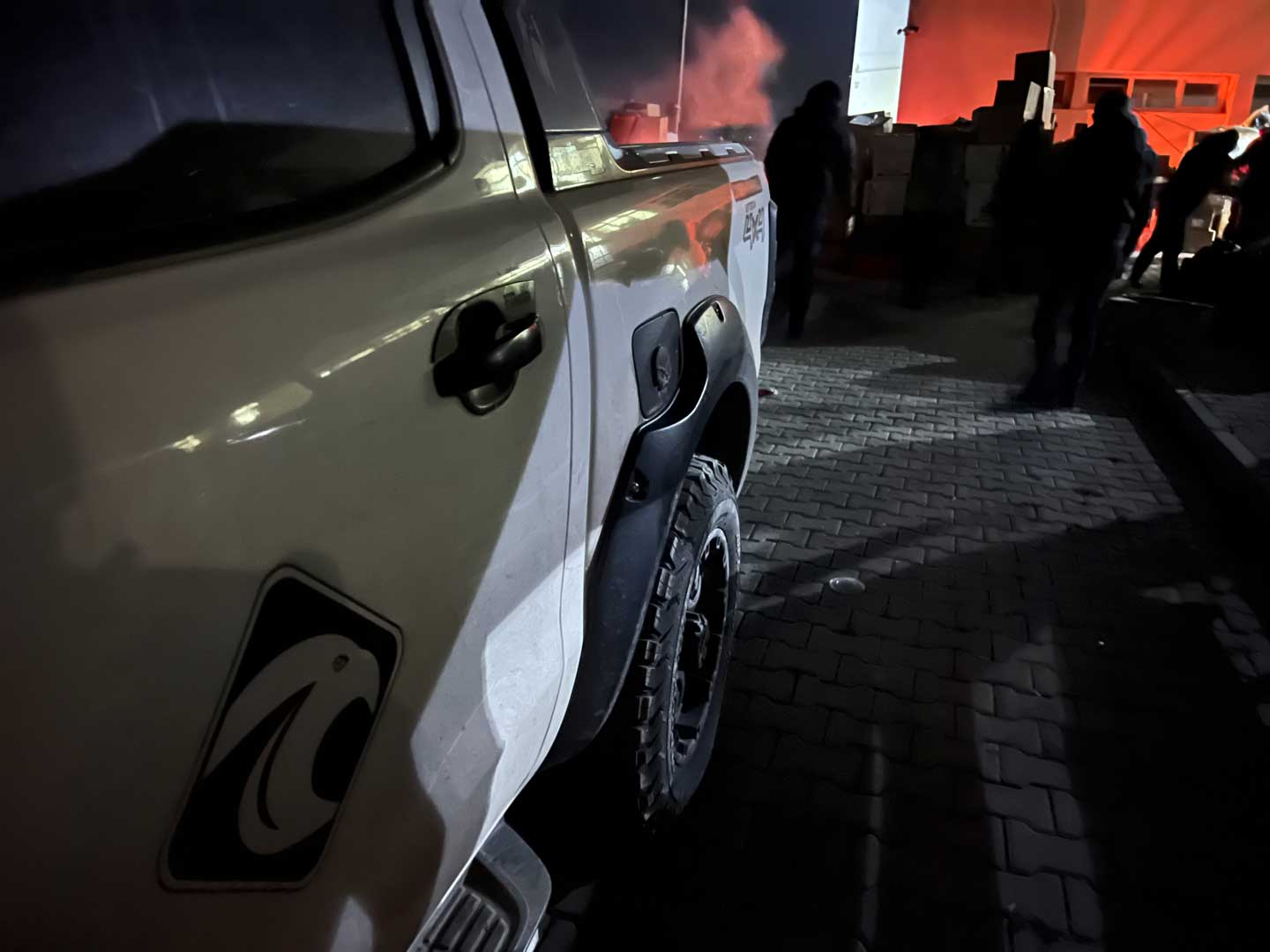
After days of persistence, we also managed to establish official communication channels. Thanks to the relentless efforts of the military commander leading the small unit, we secured approval for military aid helicopters to be deployed. Before unloading the supplies, we prepared and cleared an area suitable for helicopter landings, ensuring safe and efficient operations. Over the following days, we helped unload approximately 21 helicopters filled with crucial relief supplies.


However, centralizing aid in one location came with risks. As resources accumulated, armed groups attempted to loot the supplies, leading to security threats. Our team also faced a small attack attempt, which fortunately ended unsuccessfully. These challenges highlighted the harsh realities of disaster response—aid is not just about logistics; it’s also about ensuring security and order.
Leaving Behind and Organized Relief System
Understanding the long-term needs, we worked tirelessly to establish a fully operational tent city and a structured system for aid distribution. Once this system was functional and handed over to authorities, we stepped back, knowing that an organized and sustainable relief operation had been put in place.
Leaving was bittersweet. We had witnessed unimaginable suffering but also extraordinary resilience. For many of us, these were some of the most intense and emotionally difficult days of our lives.
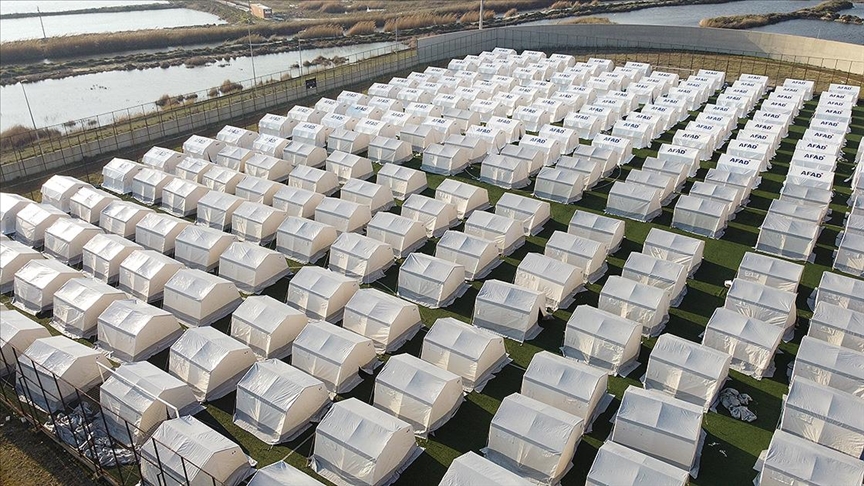
Honoring the Effort
To recognize the courage and relentless dedication of those involved, we awarded Cyber Struggle team members and affiliates who took part in the rescue and logistical efforts with the "BOMM – Brave for One More Minute" ribbon—a symbol of perseverance in the face of crisis. Additionally, we designed a commemorative patch to mark this experience and the lessons learned.
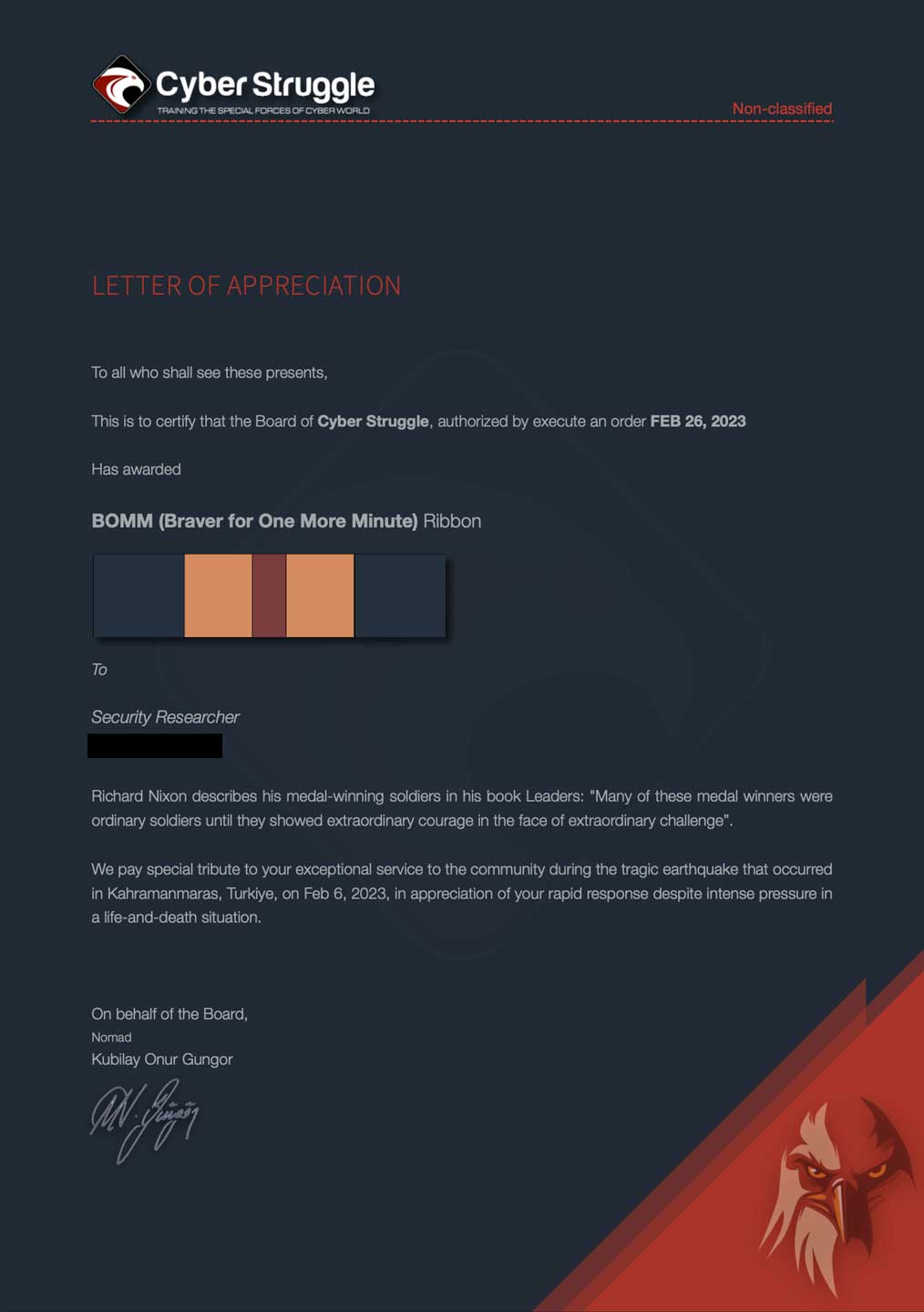
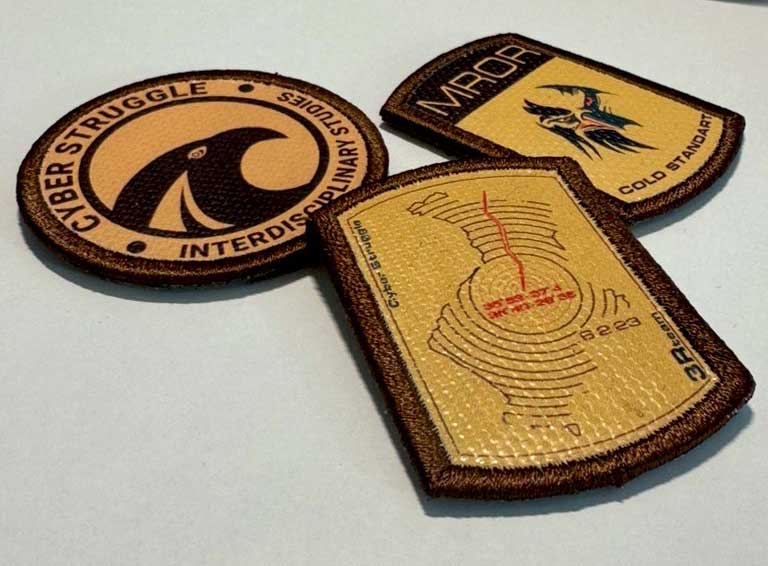
Final Thoughts
This disaster reinforced a critical lesson: while governments play a central role, individual and organizational efforts can make a massive difference. Waiting for official responses is not always an option—those who can act, must act.
This experience also led to an important decision: Cyber Struggle is now working to develop a dedicated emergency response team capable of deploying in future disasters. Our goal is to be better equipped, trained, and ready to support crisis situations in a structured and effective manner.
We did not share this story immediately after the earthquake because we did not want it to be seen as an attempt to capitalize on a tragedy. However, two years later, we believe that sharing these experiences can inspire others to take initiative in future crises.
Disasters do not wait for governments or institutions to mobilize. When catastrophe strikes, those who are ready to act can make all the difference.
Articles from the workshop

